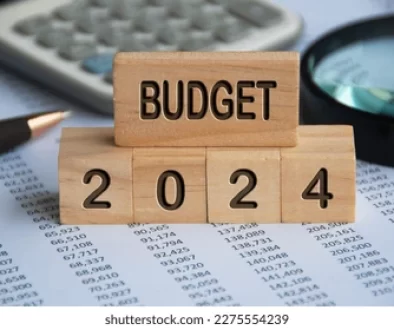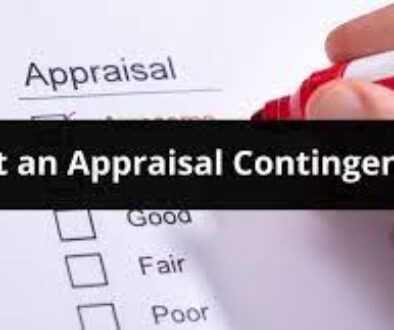Current Market Rates
Current market rates
Mortgage Interest Rates
Mortgage interest rate forecasting refers to when experts predict how interest rates will increase or decrease. You may have noted how rates have changed over the last couple of years.We’ve gone from an environment where rates were near historical lows to one where they’ve increased rapidly in a short period of time. That pace of increases may or may not slow in 2023. Before we get there, let’s touch on how we got here.
What Happened To Mortgage Interest Rates In 2022?
The main survey that people watch to get an idea of general trends in mortgage rates is the Primary Mortgage Market Survey From Freddie Mac. The latest available data shows that rates have gone up 3.23% since last year for a 30-year fixed. The average rate is 6.33%. What caused them to go up so fast?
The primary thing on analysts’ minds really since the pandemic from a financial perspective has been inflation. There were multiple causes for this. Supply chain disruptions did mean that prices went up across the economy for many of the goods and services we buy. Additionally, when prices start going up, pressure is put on businesses to raise wages, which can just push prices even higher.
In addition to the stimulus funds passed by the government in order to try to stimulate the economy, one of the things the Federal Reserve (the Fed) immediately did was cut the target for the federal funds rate to near zero during the pandemic. They also bought mortgage-backed securities (MBS) in a strategy last used in the aftermath of the housing crisis.
Low rates had the effect the Fed wanted. People bought and refinanced houses in droves in 2020 – 2021. However, if a spoonful of sugar makes the medicine go down, there’s some argument that the children got the whole bag of sugar because the market probably became a bit overstimulated. Rates got so low that it led to a steep rise in home prices.
Because housing makes up a huge share of the economy, it also occupies the major portion of most people’s monthly budgets. Therefore, when housing prices rise, it also has a huge impact on overall inflation numbers. As such, one of the Fed’s main strategies for controlling inflation has been to raise the benchmark for the federal funds rate and sell off their MBS holdings.
Inflation got as high as 9.1% on a basis of 12 months in June, which was a high not seen since February 1981. If you’ve studied economics in the ‘80s at all – yeah, I’m real fun at parties – you know the inflation was about as bad then as any time in recent memory. The Fed pushed interest rates through the roots in order to get things under control.
While not as bad as it was at that point, we have been in an upward inflation cycle and the Federal Reserve has been aggressive in both raising the benchmark for the federal funds rate and selling off their MBS. Both have had the effect of pushing rates up. When the Fed is buying MBS, the yield on the bonds doesn’t have to be as high to attract a buyer and rates tied to those bonds are lower. When the Fed is selling, the opposite happens.
Factors That Affect Mortgage Rates
The main thing people have been focused on over the past year and a half or so has been inflation. While we’ll go deeper on its impact on mortgage rates, there are several other factors that influence rates as well.
Inflation
Mortgage rates and inflation go hand in hand. When inflation increases, typically interest rates increase too so they can keep up with the value of the dollar. If inflation decreases, mortgage rates drop. During periods of low inflation, mortgage rates tend to stay the same or slightly fluctuate.
The other reason to increase interest rates as inflation is going up is that as rates rise, the cost of borrowing funds becomes more expensive. When that happens, people are more likely to hold onto the money they have rather than spend it, which in theory tamps down inflation over time. That’s really what the Federal Reserve is trying to accomplish now.
World Events
World events, such as the COVID-19 pandemic and the Russian conflict with Ukraine, affect mortgage interest rates. Over the course of history, mortgage rates have been affected by World War II, the oil embargo in the 1970s and 1980s, the housing market crash in 2007 and Brexit, for example.
Economic Crises
Interest rates usually fall early in a recession and typically rise as the economy recovers. For example, let’s say you take out an adjustable rate mortgage during a recession; the interest rate will likely increase when the downturn comes to an end. Indicators of economic growth (and economic crises) include employment numbers and gross domestic product (GDP).
The Federal Reserve
The Federal Reserve affects short term interest rates by increasing or decreasing the target for the federal funds rate. They make decisions based on the economy to control the money supply, balancing the need for having conditions that foster economic growth with the necessity of also keeping a lid on inflation.
When the Fed decides they need to tighten up the money supply, they raise interest rates on consumer borrowing, including mortgage rates. When the Federal Reserve sets a higher target range for the federal funds rates, they end up paying more to borrow funds from each other. As a result, the lenders pass higher costs on to clients.
Bond Prices
Mortgage interest rates go down as bond prices go up. As bond prices go down, mortgage interest rates go up. Mortgage lenders tie their interest rates closely to 10 year Treasury rates. Mortgage rates increase or decrease depending on demand.
In general, if people are feeling more skittish about the prospects for the economy, they’ll invest more money in bonds and yields will go down because they’re considered safer assets. If they’re feeling better about the direction of things, more money ends up in stocks, which offer a higher rate of return, but also greater risk of loss.
Property Type
How you plan to occupy the property also plays a role in the interest rate you receive. Lenders judge rates not only based on your financial investment, but also your physical attachment to a property. We can explain.
If a home is your primary residence you’re more likely to prioritise that payment if you get into financial trouble because you live there on a daily basis. On the other hand, if you had to choose, the payment on a vacation home or investment property might not be considered as important. Lenders view these loans as having more risk and charge a higher rate.
Personal Factors
Mortgage interest rates also depend on lenders taking a look at your personal finances and other personal factors, such as the amount you plan to borrow, your repayment term, employment status and income, loan-to-value ratio and credit score. All of these things, taken together, also affect your personal mortgage interest rate.
Mortgage Interest Rate Predictions
Now that you know where we’ve been and what affects interest rates, it’s time to get to the predictions. Let’s not waste another second.
Mortgage Rate Predictions For 2023
Everybody from me to your Uncle Phil could have a prediction on the rate of a 30-year fixed mortgage in 2023, but we’ve narrowed it down to three major forecasting sources. Even here, there’s some wide variability in expectations. We should note that all of these forecasts were released in November.How wide is the gap? Fannie Mae sees the average rate of a 30-year fixed getting to 6.8% in 2023. Meanwhile, the prediction from Freddie Mac is 6.4%. The Mortgage Bankers Association is the real outlier, projecting the 30-year rate at 5.2% next year.
What The Mortgage Rates Forecast Means For Borrowers
What are the implications of the predicted 2023 mortgage rates for borrowers? If you’re thinking about refinancing and your finances are ready to go, it’s not a bad idea to lock your rate sooner rather than later. We’re definitely in an upward cycle.If experts are correct and mortgage rates continue to rise to begin the year, it might pay to refinance before rates rise again.
If you’ve been planning to buy a home and have your finances in order, it may also be worth buying soon, before rates have a chance to increase. By purchasing a home today rather than 6 months from now, you could potentially be saving yourself significant interest over the life of the loan.It can be easy to feel that you’re missing out by not buying while rates are lower. It’s true that waiting to buy might mean you end up with a higher interest rate. However, it’s important to consider waiting until you’re financially ready for a mortgage rather than locking in a low interest rate before you’re really ready.
Always remember that the current market rate isn’t the only thing that affects your mortgage rate. Your credit score, property type and down payment all factor into the rate your lender will give you for your mortgage.
The Caveat Of Mortgage Interest Rates Forecasting
Mortgage rate forecasting is not a sure thing. It’s a good idea to treat these forecasts as a guide rather than a hard-and-fast rule. Mortgage rates have taken some unexpected turns over the past 2 years, and experts have certainly been wrong before. However, these predictions may help you plan your home purchases in the future.
Can You Trust Mortgage Interest Rates Forecasting?
Mortgage rate forecasting is not a sure thing. It’s a good idea to treat these forecasts as a guide rather than a hard-and-fast rule. Mortgage rates have taken some unexpected turns over the past 2 years, and experts have certainly been wrong before. However, these predictions may help you plan your home purchases in the future.
Freddie Mac publishes a quarterly report with its mortgage rate predictions. Using the economic outlook, Freddie Mac’s Economic & Housing Research Group updates forecasts on what we can expect from rates in the coming months and years. You may want to keep tabs on this report to see what’s coming down the pike.




